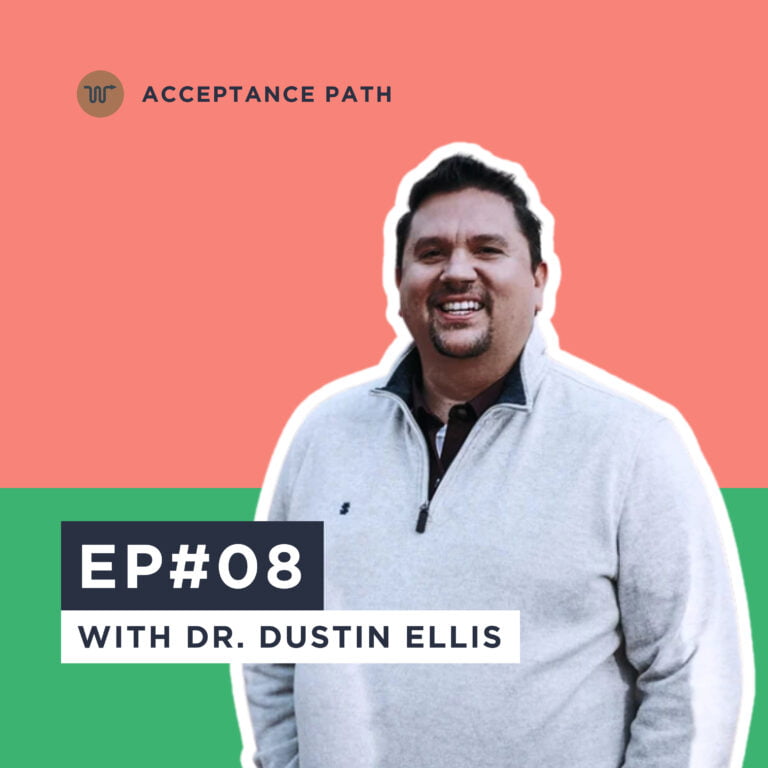
Two mental health experts have joined forces to make an uplifting podcast about well-being and personal growth. We use this show to share fresh and sometimes eye-opening ideas, helping listeners create a more fulfilling life. We’re not pushing any one viewpoint – instead, we’ll bring in guests from all walks of life to expand our understanding of the world. Come along with us as we explore different outlooks together.
AJ Huynh and Sheree Morgan talk with Dr. Dustin Ellis about the crucial role of rest in our lives. They explore the difference between rest and sleep, discuss how to overcome barriers to rest, and share practical tips for incorporating rest into daily routines. Dr. Ellis shares his personal journey of learning to value rest and explains why it's essential for mental health, creativity, and overall well-being.

In our fast-paced, achievement-driven society, rest often takes a backseat to productivity. However, understanding the importance of rest is crucial for our overall well-being. Research shows that up to 73% of adults report stress affecting their mental health. Rest is essential for better mental well-being, increased concentration and memory, a healthier immune system, reduced stress, improved mood, and even better metabolism.
Dr. Dustin Ellis, a licensed professional counselor in The Woodlands, Texas, joined the Acceptance Path podcast to discuss the importance of rest and how to incorporate it into our lives effectively.
The Personal Journey to Appreciating Rest
Dr. Ellis shared his own journey of learning to appreciate the importance of rest, which began in high school:
“I was a pretty high achieving high school student. My parents encouraged me to be a good academic student. They really saw success in school as a way to have a better, brighter future. And so I threw myself into high school life, difficult classes, AP gifted and talented classes, and it ends up with loads of homework every night until the wee hours in the morning.”
This intense focus on achievement led to physical health issues for Dr. Ellis, including stomach problems that required medical intervention. A gastroenterologist told him bluntly: “You’re too young for this. If you go down this path, you’re going to spend the rest of your life on medicine that’s not going to work. You have to learn how to deal with stress.”
This wake-up call led Dr. Ellis to start restructuring his life around a process of deciding what’s important, what he could manage, and learning to let things go – all of which highlighted the importance of rest in his life.

Rest vs. Sleep: Understanding the Difference
When discussing the importance of rest, it’s crucial to distinguish between rest and sleep:
- Sleep is a sensory detachment and a necessary part of life. We cannot function properly without sleep.
- Rest can look different for different people. It might involve taking a walk in the woods, sitting on the couch and simply breathing, or engaging in a relaxing hobby.
While we can technically live without rest, our bodies tend to react negatively without it, underscoring the importance of rest for our overall health.
AJ recently wrote an article on insomnia. If you’re interested in learning ways to tackle your sleep issues, then click here to read more. It’s notable to mention that sleep and rest are two unique concepts. Discover the ins and outs of sleep in our third podcast episode with special guest Dr. Rubina Varma.
The Culture of Overachievement
Our society often glorifies overachievement and constant productivity, often overlooking the importance of rest. Dr. Ellis notes:
“We’re a culture of overachievers, right? So we feel pressure to run life’s treadmill, and if we get off, then we feel like we’re failing.”
This mindset can make the idea of rest seem almost repulsive, as it goes against the desire to do and achieve more. However, this approach often leads to burnout and decreased overall productivity, further emphasizing the importance of rest.
The Benefits of Rest
Research supports the importance of rest:
- A 2009 study found that participants who took breaks during problem-solving tasks were 40% more likely to come up with creative solutions.
- Rest and relaxation can lower cortisol levels by up to 50%.
Dr. Ellis emphasizes that rest isn’t just about sleep or physical relaxation:
“Rest is really stopping one thing and doing another. It’s not that rest should always be busy, but rest from work could be a walk, for those who spend maybe too much time at the gym, rest could be time away from the gym. Rest could be sitting and having a cup of coffee, rest could be going to a movie with a friend, rest could be engaging in a hobby, rest could be cleaning out the garage.”

Finding Balance: Quality vs. Quantity
The key to effective rest is finding balance. Dr. Ellis suggests:
“It really is about quality versus quantity in our lives. If you want to do 40 sessions in a week as a counselor, we’re helping lots of people. Do 20 sessions in a week where you can dive deep and have space to make the time rich with others.”
This balance applies to all areas of life, not just work. It’s about distributing energy and time well across different aspects of our lives, which is a crucial aspect of understanding the importance of rest.
Overcoming Barriers to Rest
Many people struggle to incorporate rest into their lives due to:
- Fear of reflection: Rest often involves slowing down and reflecting, which can be uncomfortable if we’ve been neglecting important aspects of our lives.
- Misconceptions about rest: Rest doesn’t always mean complete inactivity. It can involve engaging in different activities that rejuvenate us.
- Lack of community support: Our environment and relationships need to allow space for rest.
Recognizing these barriers is the first step in truly understanding the importance of rest and making it a priority in our lives.
Practical Steps for Incorporating Rest
- Start small: Begin with “micro rest” – short breaks throughout the day.
- Be intentional: Rest should have a purpose, not be avoidance.
- Relearn how to rest: It might feel awkward at first, especially for couples trying to reconnect. Start with low-pressure activities.
- Model rest: As professionals, we need to demonstrate healthy rest habits to our clients.
By implementing these steps, we can begin to fully appreciate the importance of rest in our daily lives.
Conclusion
The importance of rest cannot be overstated. It’s not a luxury; it’s a necessity for optimal mental, physical, and emotional health. By understanding the importance of rest and intentionally incorporating it into our lives, we can improve our overall well-being and productivity.
As Dr. Ellis concludes:
“Rest has to be integrated into our life as a rhythm rather than a one-shot cure or vaccine. Most of the counselors I know are some of the worst at rest. If we’re leading people into this and we know that it’s important, we have to go first and model that.”
By prioritizing rest and recognizing its importance, we can lead more balanced, fulfilling lives and inspire others to do the same. The importance of rest is not just about feeling good – it’s about living better, working smarter, and enjoying life to its fullest.



